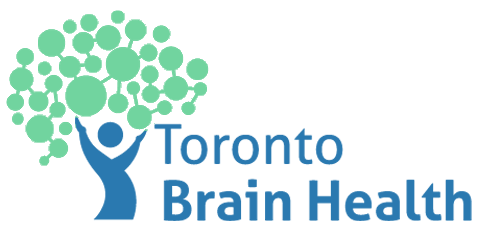What is a concussion?
A concussion, also known as a mild traumatic brain injury, is an immediate and temporary alteration in brain functioning due to physical trauma. A concussion can occur as a result of a hit to the head, or forces causing a sudden jolt to the head such as whiplash or blow to the body. Loss of consciousness is not necessary for a concussion to occur. In fact, only 10% of individuals who sustain a concussion lose consciousness. Up to a third of individuals experience post-traumatic amnesia, also known as post-traumatic confusional state, which disrupts memory for events occurring shortly before or after injury. Loss of consciousness, post-traumatic amnesia or confusion, feeling dazed, disoriented, or ‘out of it’, are all examples of altered brain functioning following concussion. Concussion is rarely detected using conventional imaging methods (e.g., CT or MRI scans).
What happens during a concussion?
A concussion can occur due to rapid acceleration and deceleration forces such as when the head comes into direct contact with a surface or through whiplash. It can also occur due to sudden and rapid rotation of the brain. Typically, there are a combination of forces resulting in concussion. Rotational or twisting forces are particularly hard on the white matter fibers in the brain and can contribute to a longer recovery time.
Acceleration and deceleration forces in concussion
Other factors can also contribute to a longer recovery, and are reviewed below.
Symptoms commonly experienced after a concussion
One or more of the following symptoms may develop immediately or within minutes, hours or even days after injury. These symptoms are not specific to concussion and can occur in healthy individuals for a variety of reasons. They can also persist once the brain has healed.
Physical symptoms can include headache, dizziness, vertigo, tinnitus (ringing in one or both ears), balance difficulties, sensitivity to light and/or sound, nausea, vomiting, fatigue and sleep problems.
Cognitive symptoms can include difficulties with attention or concentration, memory, planning, problem solving, processing speed and finding the right words in conversation.
Emotional and behavioural symptoms can include irritability, depressed mood, anxiety, low stress tolerance, personality change, and, difficulties coping with an emotionally traumatic injury, such as Post-Traumatic Stress Disorder, grief, problematic alcohol or recreational drug use.
Typical recovery following concussion
After a single concussion, most individuals’ symptoms resolve within 10-14 days. Symptoms that persist beyond two weeks fall outside the typical recovery period and can increase the likelihood that an individual will have a prolonged recovery, also known as concussion with persistent symptoms or post-concussion syndrome. The largest effect of concussion on cognitive symptoms lasts up to 7 days post-injury. Cognitive difficulties however may persist up to 30 days after injury and for most people completely resolve within 3 months.
Risk factors for concussion with persistent symptoms
Research suggests that the presence of one or more of the following circumstances can increase the risk of persistent post-concussion symptoms.
Multiple symptoms following concussion (e.g., physical, emotional/behavioural, cognitive)
Severe cognitive symptoms following concussion (e.g., concentration, memory)
Ongoing headaches and/or migraines after injury
Psychological symptoms or conditions following injury (e.g., depression, anxiety)
History of psychological conditions or symptoms before injury
Past history of concussion(s)
Psychological factors in prolonged recovery
Many post-concussive symptoms are not unique to concussion. Although symptoms experienced immediately or shortly after injury are likely to be related to brain trauma, over time the brain heals and persistent symptoms can be maintained by many other factors. Circumstances that can develop after concussion and cause similar symptoms include depression, anxiety, avoidance of triggers (e.g., sound, lights, physical or cognitive exertion), sleep disruption, fatigue, pain such as headaches, preoccupation with ones symptoms, and even misinformation by well meaning family and health professionals. These factors often form barriers to recovery and can even make it feel like the post-concussive symptoms are getting worse. Fortunately, psychologists knowledgeable in concussion management can treat most of the barriers to recovery and get you on the right track to feeling like yourself again.
Persistent cognitive symptoms following concussion
Many people with persistent symptoms following concussion experience cognitive difficulties and worry that this is their ‘new normal.’ We know from neuropsychological research studies that cognitive difficulties can be maintained or magnified by circumstances not related to the brain injury itself. For instance, physical symptoms (headache, dizziness, nausea), mood symptoms (sadness, anxiety) and sleep problems can each negatively impact cognitive abilities. These factors can also further magnify each others’ negative effects on thinking abilities. For instance, physical pain can contribute to low mood, low mood is known to increase physical pain, both can negatively impact sleep which can in turn make low mood and physical pain even worse, all of which make basic thinking abilities like concentrating and remembering information a challenge. The good news is that cognitive difficulties are not typically permanent and can improve when low mood, anxiety, pain etc. are treated.
Treatment guidelines for concussion with persistent symptoms
Although there are many concussion therapies being promoted on the internet, it can be hard to know what works and who to trust. Fortunately, there is a group of international experts who review all research on concussion every few years, rank it for quality (proper unbiased experimental design) and provide evidence-based guidelines for treatment (McCrory et al., 2017). Following a doctor’s visit to rule out anything more serious, concussion management is about getting the right information (e.g., education session, written material) and evidence-based therapies to treat your symptoms. Below we share the most up-to-date treatment guidelines and related information. Consultation with a qualified health professional knowledgeable in concussion management is recommended to determine what treatment is right for you and your specific situation.
Neuropsychologists play an important role in treating persistent symptoms following concussion. Barriers to recovery and their impact on thinking abilities are identified in assessment (e.g., low mood, anxiety, trauma, pain, sleep problems), and are targeted using evidence-based treatment. Neuropsychologists are particularly well suited for concussion management as they can assess and treat both psychological and cognitive symptoms as they have specialized knowledge in brain function and rehabilitation.
Management of problems relating to the cervical spine (neck) and vestibular function (dizziness/ balance) is recommended. Physiotherapists knowledgeable in concussion management and vestibular rehabilitation can provide these treatments.
An aerobic exercise program can be beneficial for individuals with persistent concussion symptoms due to dysregulation of the autonomic nervous system.
If you or someone you know is dealing with persistent symptoms following concussion, contact Toronto Brain Health to schedule a consultation with one of our neuropsychologists. We work well with clients’ existing concussion management team and can connect clients with professionals from other disciplines to ensure they have the support to maximize their recovery.





